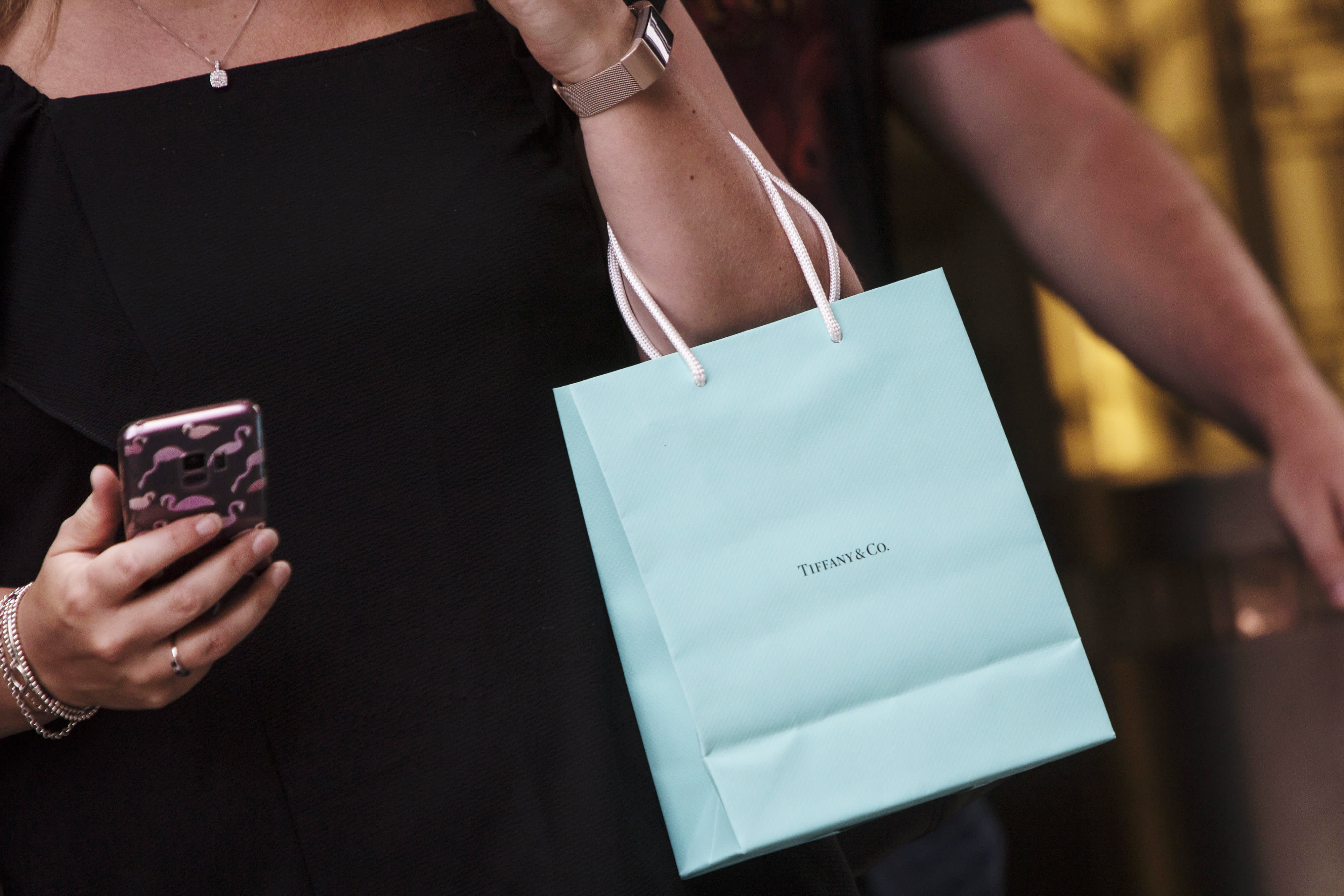Hits: 9

A shopper carries a Tiffany & Co. retail bag on Fifth Avenue in New York, May 30, 2019.
Victor J. Blue | Bloomberg | Getty Images
Luxury jeweler Tiffany on Thursday reported earnings and revenue that fell short of analyst expectations.
Here’s what Tiffany reported compared with what analysts were expecting, based on a survey of analysts by Refinitiv:
- Earnings per share, adjusted: 65 cents vs. 85 cents expected
- Revenue: $1.015 billion vs. $1.037 billion expected
- Same store sales: unchanged vs. expected 1.4% gain
Tiffany stock initially fell more than 1% in the premarket but regained nearly all of the losses by the first hour of the trading session.
In the third quarter ended Oct. 31, Tiffany said net income decreased by 17% to $78 million, or 65 cents per share, from $95 million, or 77 cents per share, a year earlier. Analysts were expecting Tiffany to earn 85 cents per share in the quarter.
Revenue was unchanged at $1.015 billion from a year earlier, but lower than the $1.037 billion analysts were expecting. Same store sales were also unchanged from a year earlier, compared with the growth of 1.4% analysts were expecting. Excluding Hong Kong, where anti-government protests has disrupted commerce, Tiffany said worldwide net sales and sales at stores open at least a year increased by 4% and 3%, respectively, from the prior year.
“Our underlying business remains healthy with sales attributed to local customers on a global basis growing in the third quarter, led by strong double-digit growth in the Chinese Mainland offset in part by softness in domestic sales in the Americas,” Tiffany CEO Alessandro Bogliolo said in a statement.
The earnings report came a week after French luxury giant LVMH reached a deal to acquire Tiffany for $16.2 billion, or $135 a share, in cash. The boards of both companies approved the deal and the transaction is expected to close in the middle of 2020, subject to approval from Tiffany’s shareholders and regulatory approvals.
The move, announced Nov. 25, will give LVMH greater access to U.S. luxury consumers and strengthen its position in the jewelry space. LVMH’s brands include Moet & Chandon, Dom Perignon, Givenchy and Louis Vuitton.
Tiffany, founded in New York in 1837, has struggled with growth in recent years. The company had falling annual sales and profit since 2015 before a revenue turnaround in 2017.
“We are very excited about the recently announced transaction with LVMH and, pending the required approvals, look forward to becoming part of the LVMH family of exceptional luxury brands,” Bogliolo said.
In its second quarter, Tiffany reported earnings that topped analysts’ expectations, but its revenue fell as protests in Hong Kong disrupted sales and tourists spent less across the U.S.
Management said in the last earnings report that if the situation worsened in Hong Kong, its fourth largest market, full-year sales results could fall closer to the lower end of its forecast.
For its fiscal year ending Jan. 31, 2020, Tiffany was originally calling for net sales globally to increase by a low-single-digit percentage, and for net earnings per share to increase by a low-to-mid-single-digit percentage. However, after the luxury jeweler reached the deal with LVMH, it said in an SEC filing it would no longer be providing guidance and that its most updated projection would no longer be in effect.
Tiffany is also renovating its New York flagship store on Manhattan’s Fifth Avenue with an anticipated completion in the fourth quarter of 2021. The company said it expects to spend 1% to 2% of worldwide net sales each year on the project. The iconic flagship store accounts for as much as 10% of annual sales.
Tiffany had a market cap of $16 billion at Wednesday’s close.
-CNBC’s Holly Ellyatt and Lauren Thomas contributed to this report.
Be the first to comment